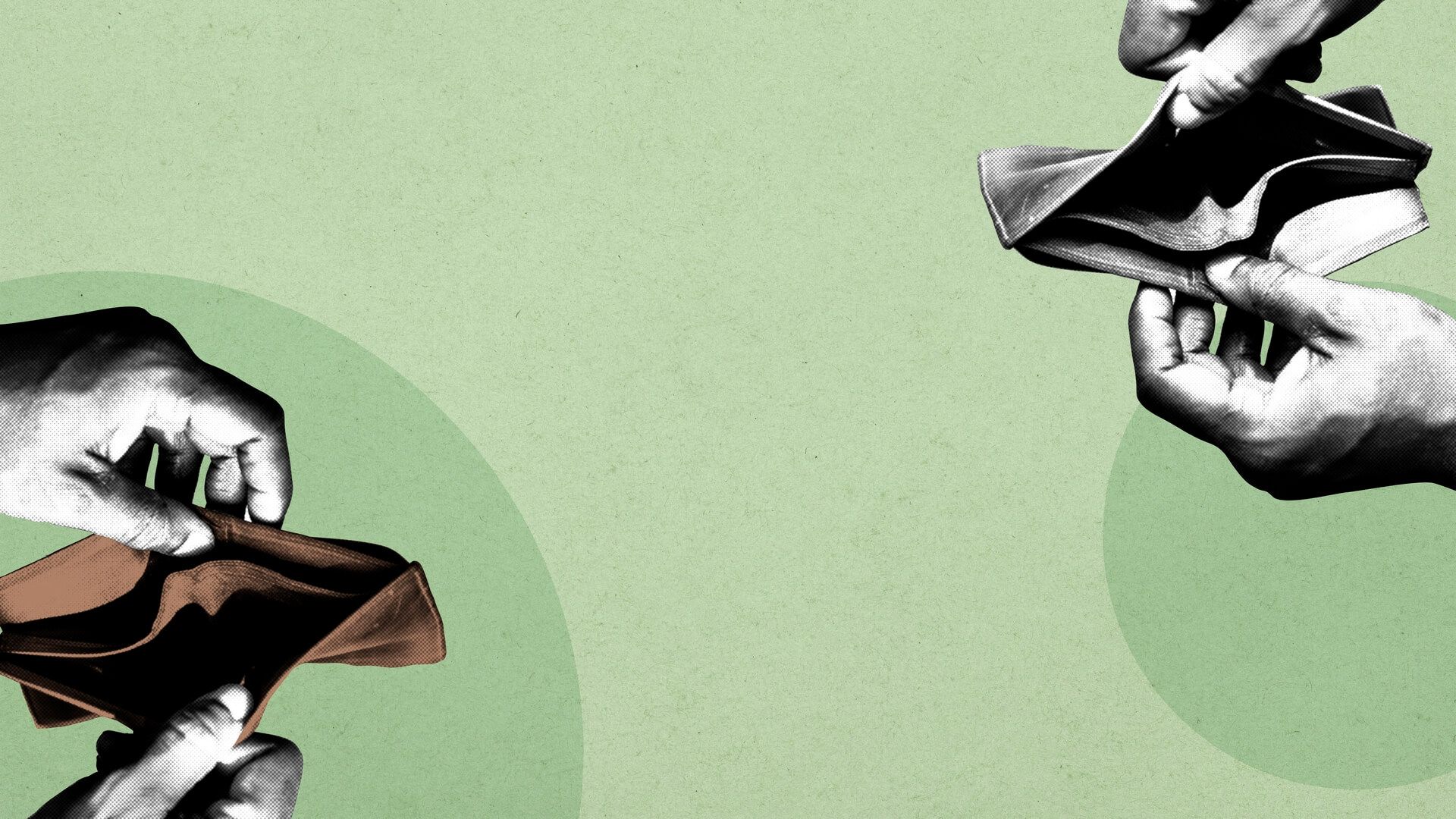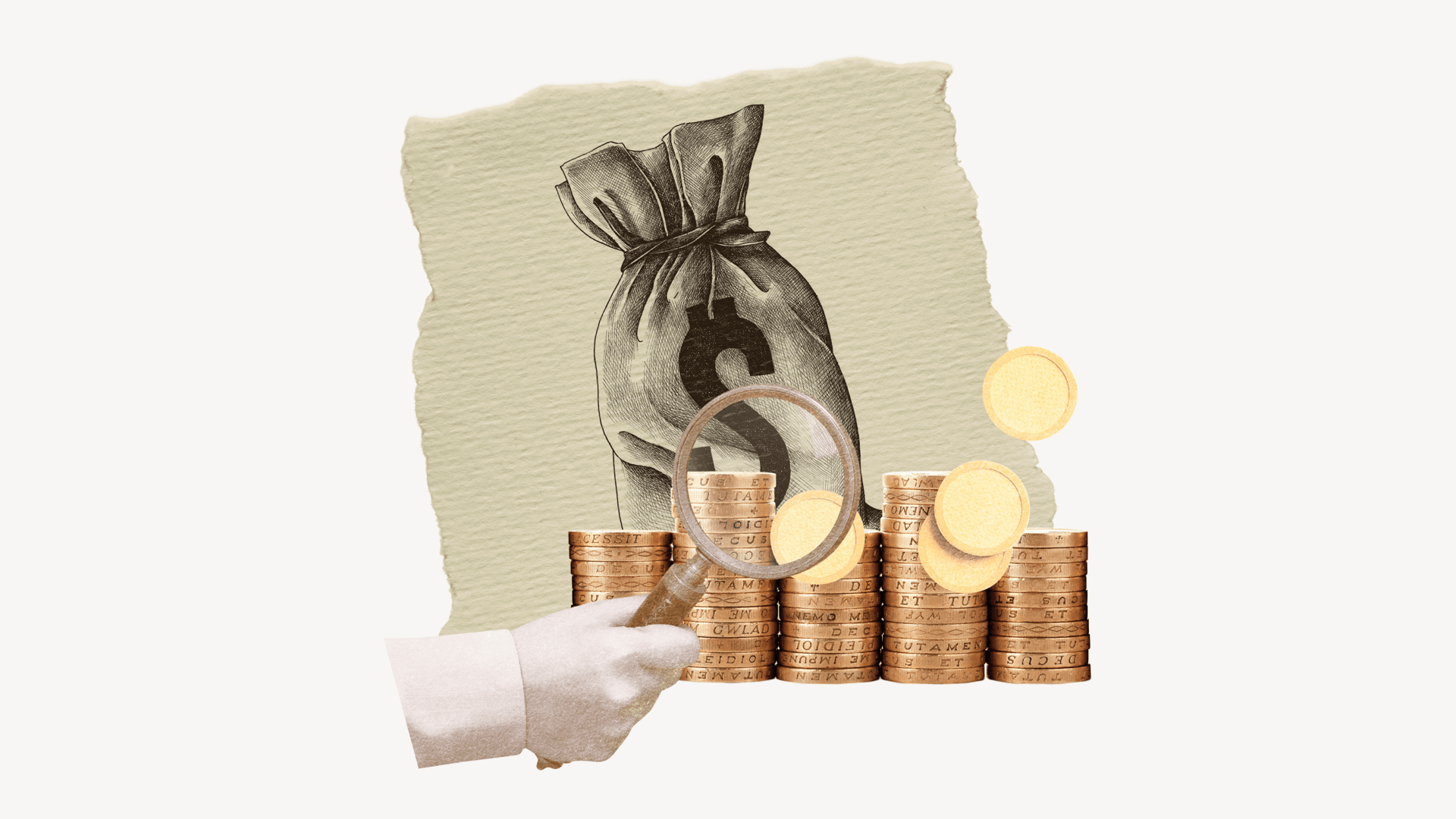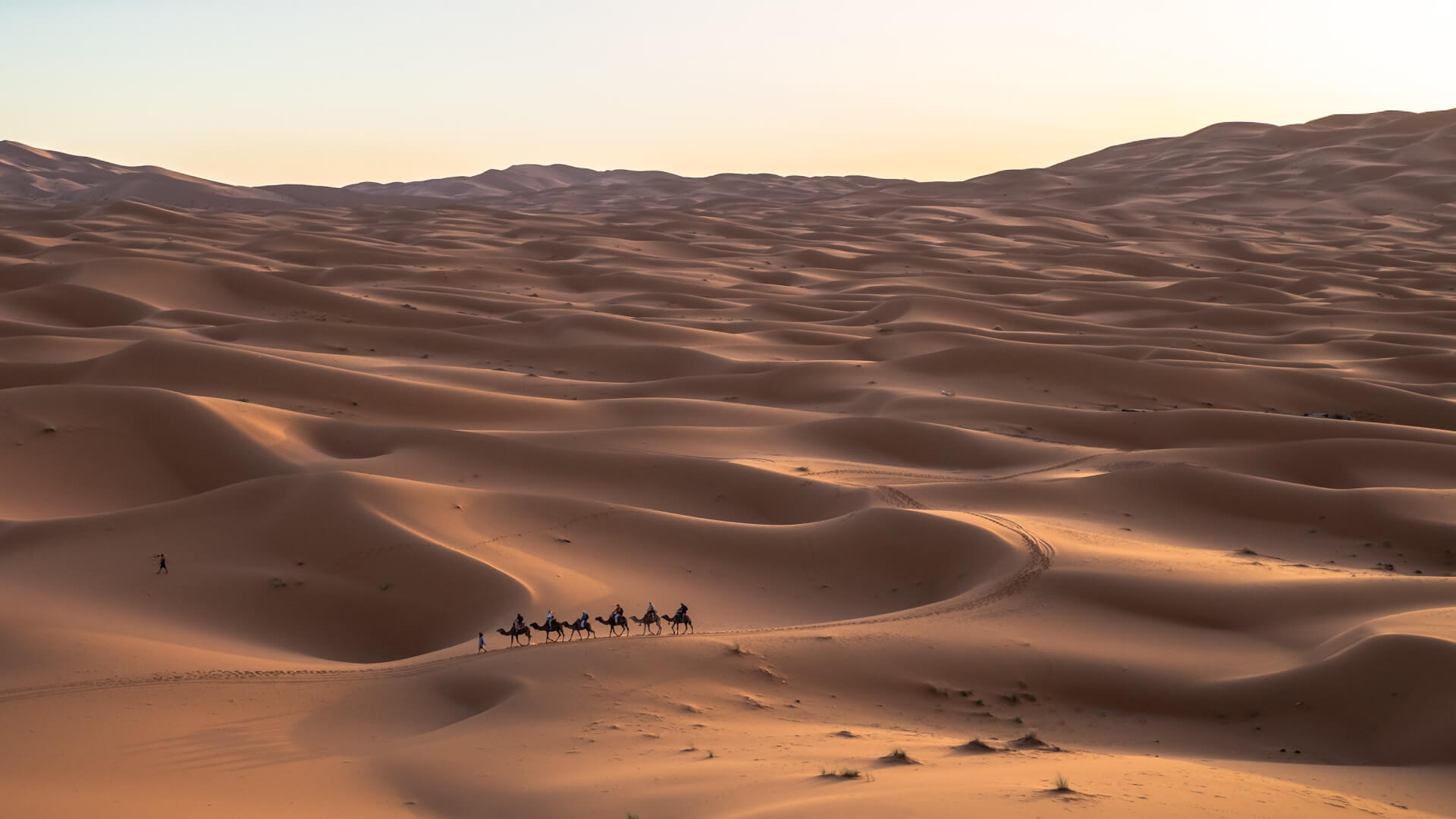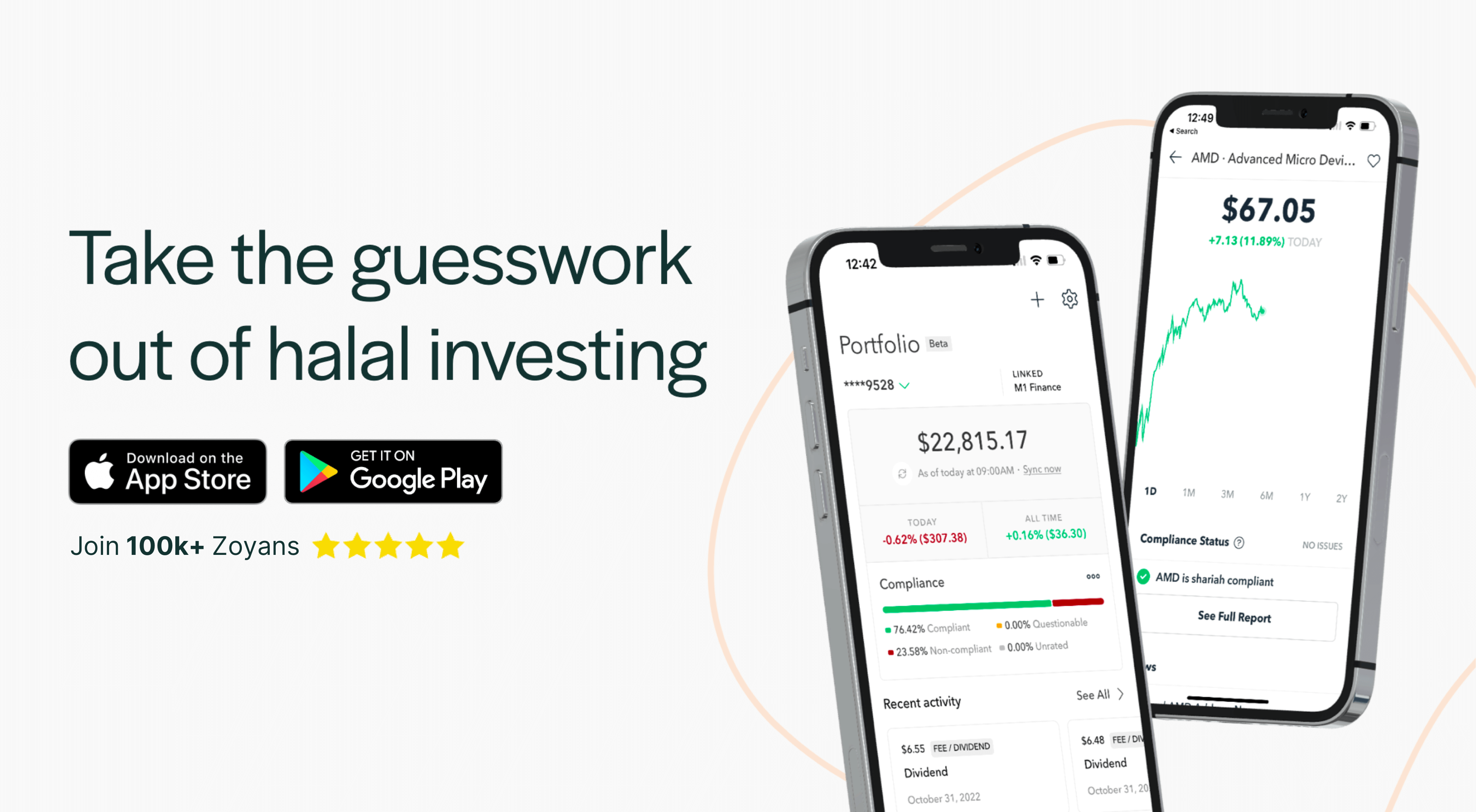4 Yolla İslami Finans Yoksullukla Mücadeleye Yardımcı Olabilir

We live in an era of immense wealth and riches. We are among billionaires, skyscrapers, and every manner of convenience. However, despite the immense riches all around us, many people around the globe are living in abject poverty. Millions of people face starvation or don’t have access to proper medical care. We effectively live in two worlds. One where people have more than what they need and desire, and the other where people struggle to meet their basic needs.
According to the UN, there is sufficient food to feed everyone on Earth. The issue of hunger is not due to insufficient food production; rather, it is because of inefficiency and waste. About one-third of the food produced for human consumption, each year is lost or wasted, most of it in developed countries. Our global material footprint has increased by over 70% since the year 2000.
Unsurprisingly, the per capita material footprint of high-income countries is significantly higher (13x) than low-income countries. This means that not only do we have high levels of economic inequality, but we are also putting an unnecessary strain on the environment due to our current patterns of consumption.
It is clear that we have sufficient resources; however, they are poorly distributed and used inefficiently. The Islamic financial and economic model has a few tools that can be used to remedy this situation. These include the following:
#1. Zakat
Zakat is an inseparable, compulsory, and integral part of life for Muslims. It is an obligatory charity that a Muslim pays on superfluous wealth once every lunar year and usually amounts to 2.5%. The word ‘zakat’ is mentioned thirty-two times in the Qur’an. For example, Muslims are commanded to:
“Establish prayer, and pay zakat. Whatever good you send forth for yourselves, you will certainly find its reward with Allah. Surely Allah is All-Seeing of what you do. (Qur’an 2:110).
While there are numerous spiritual and personal benefits of zakat, it has some specific economic benefits. These include the following:
- It pumps liquidity into the economy. Generally, the assets upon which zakat are levied are assets that are liquid. You pay zakat on gold, cash, and trade goods; however, you wouldn’t typically pay zakat on your residence. This moves superfluous wealth that would have remained idle into the hands of the poor, who are likely to spend it, effectively stimulating the economy. A stimulated economy, in turn, assists the poor in pulling themselves out of poverty.
- It is direct. Zakat is paid to eight specific groups of people who are in need of it. There is significant evidence that suggests that cash transfers are the most efficient and effective way to distribute aid. Recipients are likely to have better dietary diversity, it increases job search, leads to long-term poverty alleviation, and is cheaper.
- Zakat is a wealth tax, not an income tax. The fact that zakat is a wealth tax, as opposed to an income tax, incentivizes trade and productive use of wealth as opposed to hoarding it.
There are historical examples where zakat has been used effectively to eradicate or significantly reduce poverty. Mufti Faraz Adam, in his book Zakat Made Easy, mentions how zakat, in conjunction with other aspects of the Islamic ecosystem, can fully eradicate poverty.
During the caliphate of Umar (RA), Mu’adh (RA) was sent to Yemen. One of his duties was to administer zakat. He was to take zakat from the wealthy and redistribute it to the needy in Yemen. Initially, he sent a third of the zakat to Madinah as he could not find any recipients in Yemen for the zakat. The following year this increased to half. In the third year, Mu’adh(RA) sent the entirety of zakat collected in Yemen back to Madinah. Umar (RA) enquired about this decision, and Mu’adh (RA) replied that “I cannot find a single person in Yemen who is eligible to receive zakat.” Within three years, Mu’adh (RA) couldn’t find a single person in need of zakat; this is an indication of the potential that zakat has to fully abolish poverty in a region.
However, the nature of the modern economy has changed since the time of Umar (RA). Is it still possible to administer zakat in such a way that poverty can be eradicated?
There have been studies indicating that zakat can eradicate poverty. However, these studies tend to be regionally focused as it is significantly harder to estimate the zakat pool as well as the extent of poverty on a global scale.
A common definition of poverty is anyone who lives on less than $1.90 a day. Using this benchmark, the UN estimates that 676.5 million people will be living in poverty in 2022. If we extrapolate using this data, it will require $469.15 billion a year to eradicate poverty. The zakat pool has been estimated to be between $200 billion and $1 trillion. The amount required to eradicate poverty is well within this range. However, it should be noted that defining and measuring poverty, as well as the transferal of wealth, is a complex and sensitive issue.
#2. Avoidance of riba
Riba (interest) is clearly prohibited within the Islamic financial ecosystem. This results in a negative outcome for a variety of reasons. These reasons include the following:
- It perpetuates inequality, which generally leads to lower growth. This, in turn, impedes the ability of the poor to pull themselves out of poverty.
- Lopsided risk. When interest is used as a financing mechanism instead of risk sharing, it may lead to the accumulation of wealth among the rich without any meaningful benefit to the economy. Additionally, financing a project using risk sharing instead of interest has many benefits. This is especially true for those who require finance. When using interest to finance a project, the lender is entitled to a return of capital along with an excess irrespective of the outcome. However, in a risk-sharing transaction such as Mudarabah (profit sharing) or Musharakah (partnership), the financier is only entitled to a return if the project is a success. If the project is highly successful, the return is likely to far exceed any return a lender may have received on a loan. If the project is a failure, both parties will lose either money or/and time in a risk-sharing transaction. However, the one who requires financing will not be burdened with paying back the initial investment. This is a more just and equitable means of financing as it impedes the accumulation of wealth by the rich to the exclusion of the poor.
- Misaligned interests. Irrespective of the situation of the borrower, the lender is bound to pressurize the borrower as much as possible as the lender has a monetary incentive to do so. This may put a borrower in a situation where the borrower must make decisions that aren’t in their best interest. When interest is used as a means of finance, as opposed to some sort of risk-sharing mechanism, there is less of an incentive for the lender to ensure the venture of the borrower is successful.

#3. Waqf
A waqf is a voluntary, permanent, irrevocable endowment – in cash or kind – to Allah. Once a waqf, it never gets gifted, inherited, or sold. It belongs to Allah, and the corpus of the waqf always remains intact. The fruits of the waqf may be utilized for any shariah-compliant purpose. Farms, buildings, or shares may be designated as waqfs. The income generated (rental or profits) from the capital investment is utilized for funding sustainable community and social development projects or programs. This income can be used to fund education, healthcare, transportation, or other activities in perpetuity. While a waqf is voluntary, there are immense benefits and blessings a Muslim will incur by setting up a waqf.
Waqf is an extremely efficient and effective method to distribute resources as it utilizes market forces. However, it can be instituted for the benefit of the poor. Waqf is one prominent use of the third sector in Islamic economics that overcomes the challenges and shortcomings of conventional free-market leaning as well as command economic systems.
The Waqf Hotel ‘Uthman ibn ‘Affan'(RA) is an amazing example of how a waqf can be structured. When the Muslims migrated to Madinah, they found that the water was difficult to drink as they were accustomed to Zamzam water. The Prophet (PBUH) was then informed of a well called Rumah. The water of Rumah tasted similar to Zamzam. Unfortunately, the well was owned by a Jew who would charge even for a handful of water.
The Prophet (PBUH) sent an offer for the well in exchange for a garden in paradise. The Jewish owner refused this offer, insisting that he would only accept money. When Uthman (RA) learned of this incident, he offered to buy the well. The owner once again refused to sell the well. At this point, Uthman (RA) offered to either buy or rent half the well: a day would be for the Muslims, and on the other day, the owner could sell to whoever he wished. The owner agreed to this arrangement. Subsequently, everyone would use the well on Uthman's day. The result of this was that the owner had no customers. Eventually, Uthman (RA) bought the entire well from the Jewish owner for 20 thousand dirhams and declared it as a waqf.
After being set up as a waqf, date palms began to grow around the well. Subsequent Muslim rulers, governments, or empires looked after the waqf of Uthman(RA). The waqf of Uthman eventually came under the management of the Saudi government. The government would sell the dates in the market. The proceeds from the dates would be divided into two: half would be distributed to the poor and orphans, and the other half would be put into a special bank account in the name of Uthman (RA).
Eventually, the account accumulated enough money to buy land in Madinah, next to the Prophet’s (PBUH) mosque. A hotel built on this land will be leased to a hotel company. This arrangement is estimated to generate 50 million riyals per annum. Half will be distributed to the poor and orphans, and the other half will be put into a special bank account in the name of Uthman(RA).

#4. Good practices
One of the ways that the Qur’an describes the Prophet (PBUH) is that he was a man of “outstanding character.” (Qur’an 68:4). Additionally, the Prophet (PBUH) himself said: "I was sent to perfect good character."
Therefore, it is unsurprising that there are many other good practices that are typically not seen as notable aspects of the Islamic financial ecosystem; however, they do contribute to the eradication of poverty. Some of these practices include:
Moderation
Islam is a religion of moderation, and Muslims are commanded to avoid wastage. The Qur’an says:
“Eat and drink, but do not waste. Surely, He does not like the wasteful.” (Qur’an 7:31).
Overconsumption by the rich is a leading cause of poverty among the poor.
Remembrance of Allah
It is important to acknowledge that we as human beings are innately designed to gravitate toward our Creator. Any attempt to fill the void within our existence with anything other than Allah is bound to fail and leave behind a path of destruction. With Allah as the aim, a Muslim is more likely to institute practices of justice and fairness in his dealings.
Financial responsibility
Muslims have a financial responsibility to others in society. For example, the Prophet (PBUH) said:
“He is not a believer whose stomach is filled while his neighbor goes hungry.”
Fair and good labor practices
Islam encourages Muslims to treat human beings in the best way possible. This extends to the financial and labor sphere. In a well-documented hadith, the Prophet (PBUH) stated:
“Pay the worker his dues before his sweat has dried up.”
Conclusion
It is evident that there are sufficient mechanisms to eradicate poverty within the Islamic financial and economic ecosystem. The Yemeni example mentioned earlier is an instance of poverty eradication using the Islamic model. Many individual stories of poverty alleviation can be found by speaking to leaders in the community or grassroots organizations.
In-depth studies show that it is presently possible to eradicate poverty at a regional level using mechanisms found within the Islamic model. There is also sufficient data indicating that the Islamic model can eradicate poverty globally for humanity as a whole. The challenge lies in the thorough implementation, continued simplification, and progressive development of the Islamic model. Once these are achieved, we can expect a better future for humanity.


